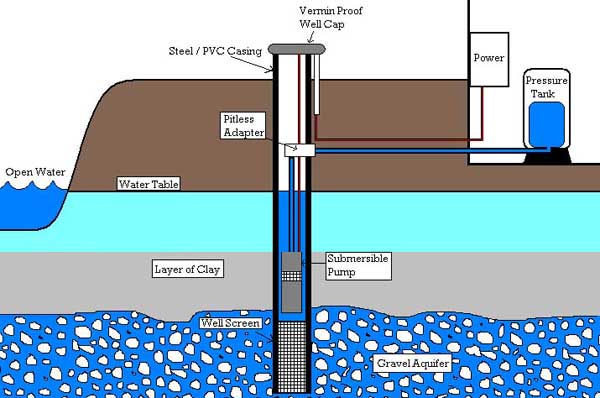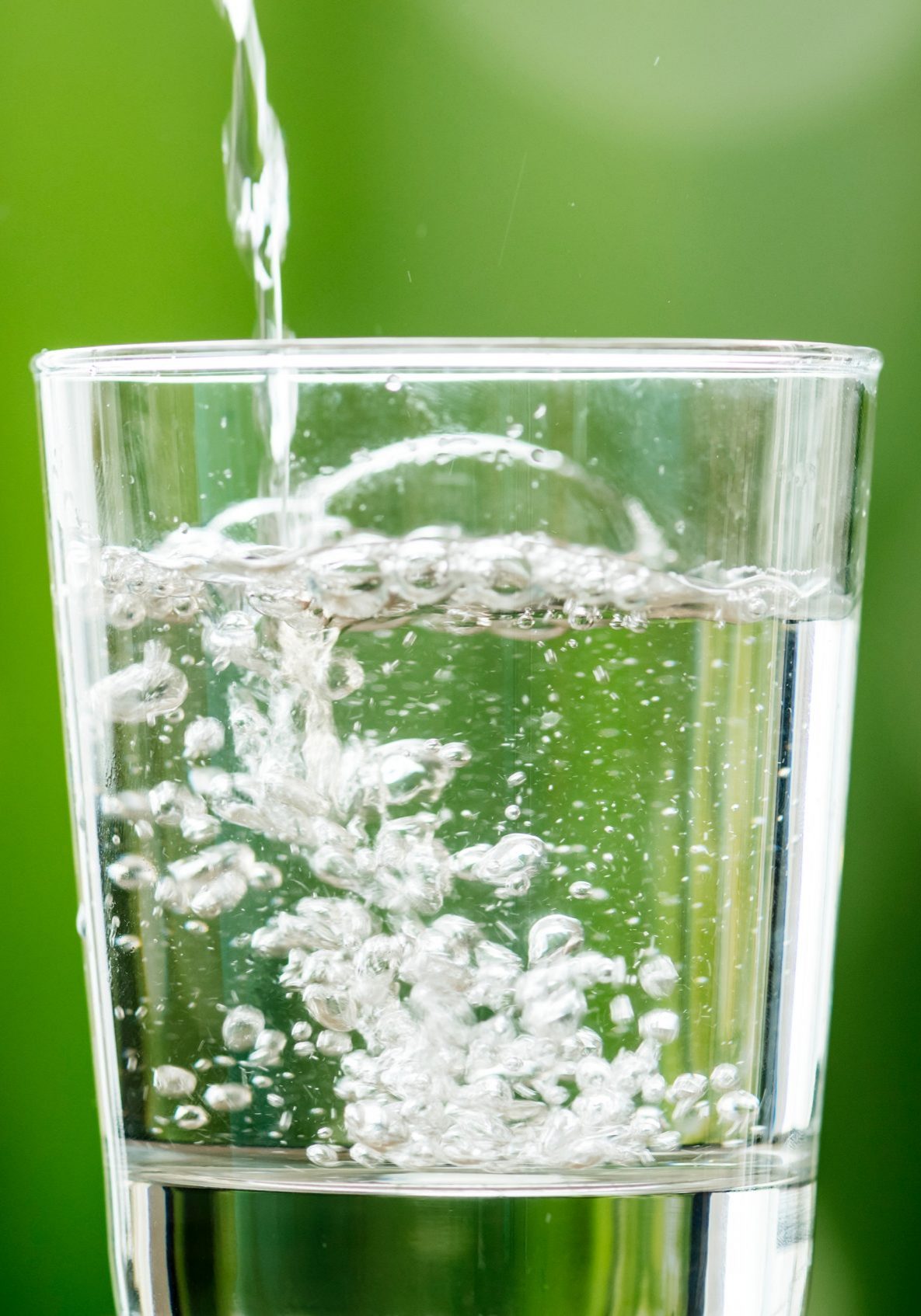
What is a Well System?
A well system is a structure that delivers groundwater to a home that is not connected to a municipal water system. A well stores groundwater in a threshold, and then a pump brings it up to the house.
A well can last for anywhere between 20-50 years, depending on the circumstances. Well pumps last about ten years.
Well Types
There are three types of wells:
Dug/Bored wells are holes in the ground dug by shovel or backhoe. They are partly cased (lined) with stones, brick, tile, etc., to prevent collapse. Dug wells have a large diameter and are approximately 10 to 30 feet deep.
Driven wells are made by driving pipe into the ground. They are cased continuously and are approximately 30 to 50 feet deep. Driven wells can be easily contaminated because they draw water from groundwater aquifers close to the surface.
Drilled wells are dug by percussion or rotary-drilling machines and can be thousands of feet deep. Drilled wells have a lower risk of contamination because they draw water further away from the surface and are entirely cased.
Pros & Cons
There are many advantages to well water. A well is the cheapest way to deliver water to your home and provides long-term savings. Once a well has been dug, it can provide a practically endless supply of water, and with adequate water filtration, it’s perfectly safe to drink and use.
A major disadvantage of well water is that various chemicals can contaminate it, some of which (like arsenic) can exist naturally at harmful levels in groundwater.
The smell and taste of well water can be unpleasant at times, especially for old wells. The quality of well water is also affected by the water table, which is the amount of water reserves in the region and depends on rain and other precipitation to replenish its supply.
Issues With Wells
The major issue for well water is contamination. It can contain bacteria, lead, arsenic, chromium 6, mercury, radon, or volatile organic compounds (VOCs), some of which occur naturally in groundwater.
Some chemicals can come from area-specific sources, and lead can leach from pipes, soldered joints, and plumbing fixtures. As the lead crisis in Flint, Michigan showed, dangerous levels of lead can create corrosive water that is harmful to personal health. Similar health concerns arise from other types of contamination.

Testing
Testing involves taking a water sample from a tap in your home and sending it to a qualified testing lab, which will provide a report of the results and the passing limit for each chemical.
It’s important to arrange for a comprehensive water quality test three times a year for the following chemicals:
- Arsenic
- Bacteria
- Chromium 6
- Mercury
- Nitrates
- Radon
- Volatile organic compounds (VOCs)
- Any other contaminants known to be an issue in your area
Check with your local health unit regarding the type and frequency of testing specific to your area. Testing is recommended after any work is done on your well and after significant weather events such as a fast thaw or severe rainstorm.
You should test your water more often if:
- The taste, odour, or appearance of your water changes
- A well cap breaks, flooding occurs, or a new source of contamination arises
- There’s a history of bacteria contamination in the well
- The septic system has recently failed or malfunctioned
- Infants or the elderly are living in your home
- There are recurrent incidents of gastrointestinal illness among residents or guests
Treatment Systems
A well water filtration system removes contaminants and impurities and improves your water’s taste, odour, appearance, and safety.
The best choice in well water filtration technology is an ultrafiltration membrane filter system. It purifies and disinfects water by removing over 99.9% of bacteria, viruses, and giardia and cryptosporidium.
Another filtration option is ultraviolet (UV) or ozone purification. However, although it may kill bacteria, it doesn’t remove bacterial remnants from your water.
Another common purification system, reverse osmosis, isn’t ideal because of the low pressure typically associated with well water systems.
There are two main ways you can install a well water filtration system:
- A whole house water filter can be installed into your main water line so that all the water that enters your house is filtered
- An under sink water filter cleans water coming out of one specific tap

Caring For Your Well
Here are some basic ways to ensure your well water is safe:
-
- Inspect the well casing once a year and look for holes and cracks
- Test fuel tanks around the home once a year and fix any leaks to prevent fuel from seeping into the well
- Install a watertight cap with a vented screen over the casing's opening
- Install check valves on water faucets with hose connections to prevent backflow
- Test your water at least three times a year at a certified laboratory
- Slope the ground away from the well to allow surface water to drain away
- Pump water at a moderate speed to help reduce groundwater depletion
- Keep chemicals away from the well to prevent contamination in case of a spill, leak or runoff
- Consult a professional well contractor regarding well-water treatment options such as filtration systems, distillation systems, water softeners and disinfection
- Hire a professional well driller and pump installer to properly close and fill unused wells to prevent them from contaminating your water. If your well needs to be replaced, have it sealed off and a new well drilled.
The House
Explore the different components of the house.

